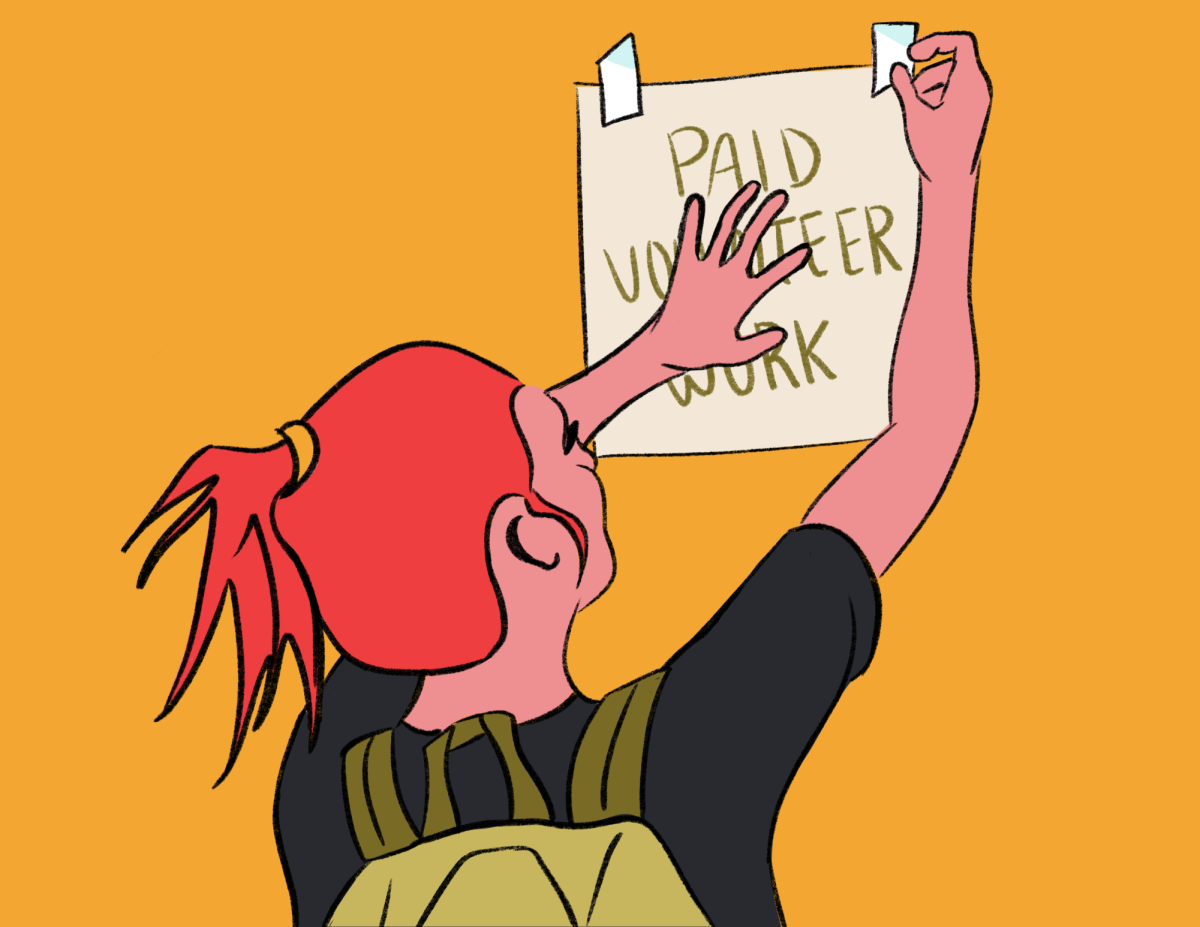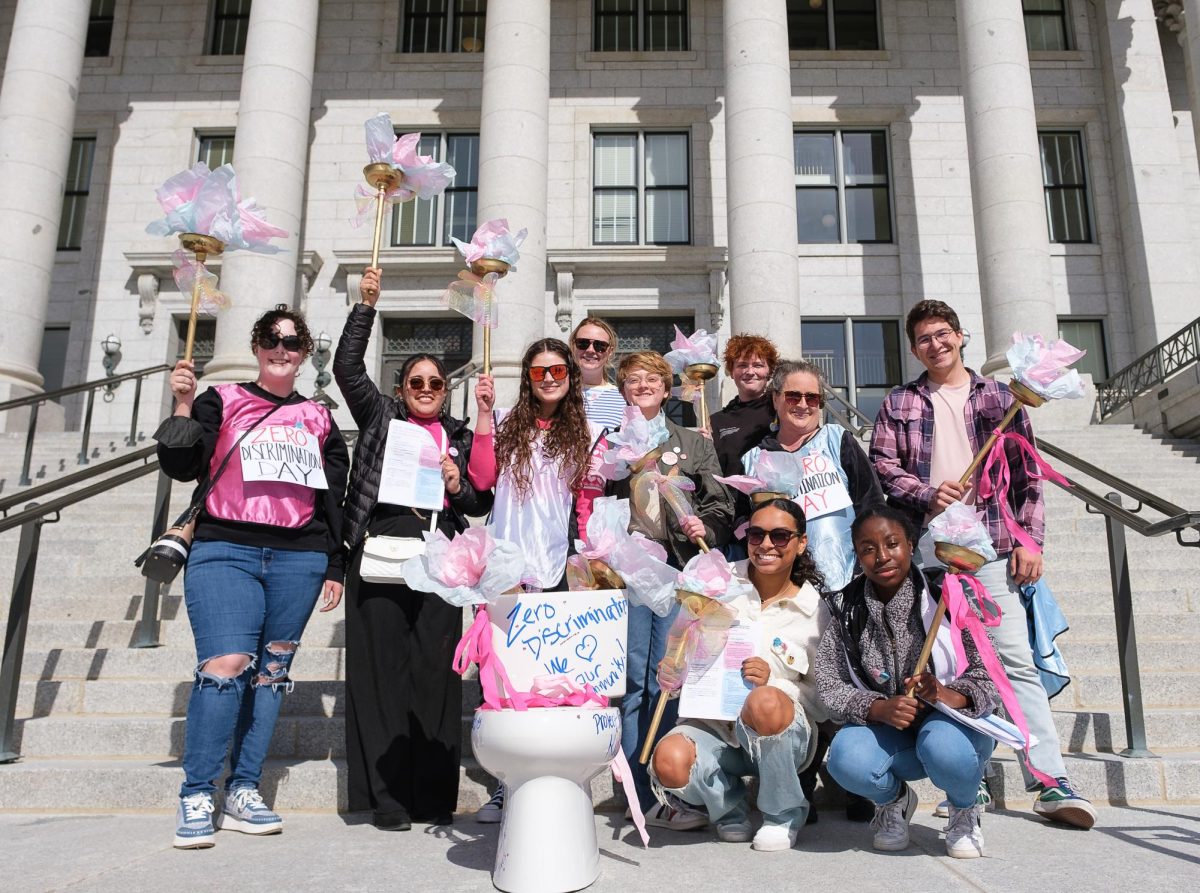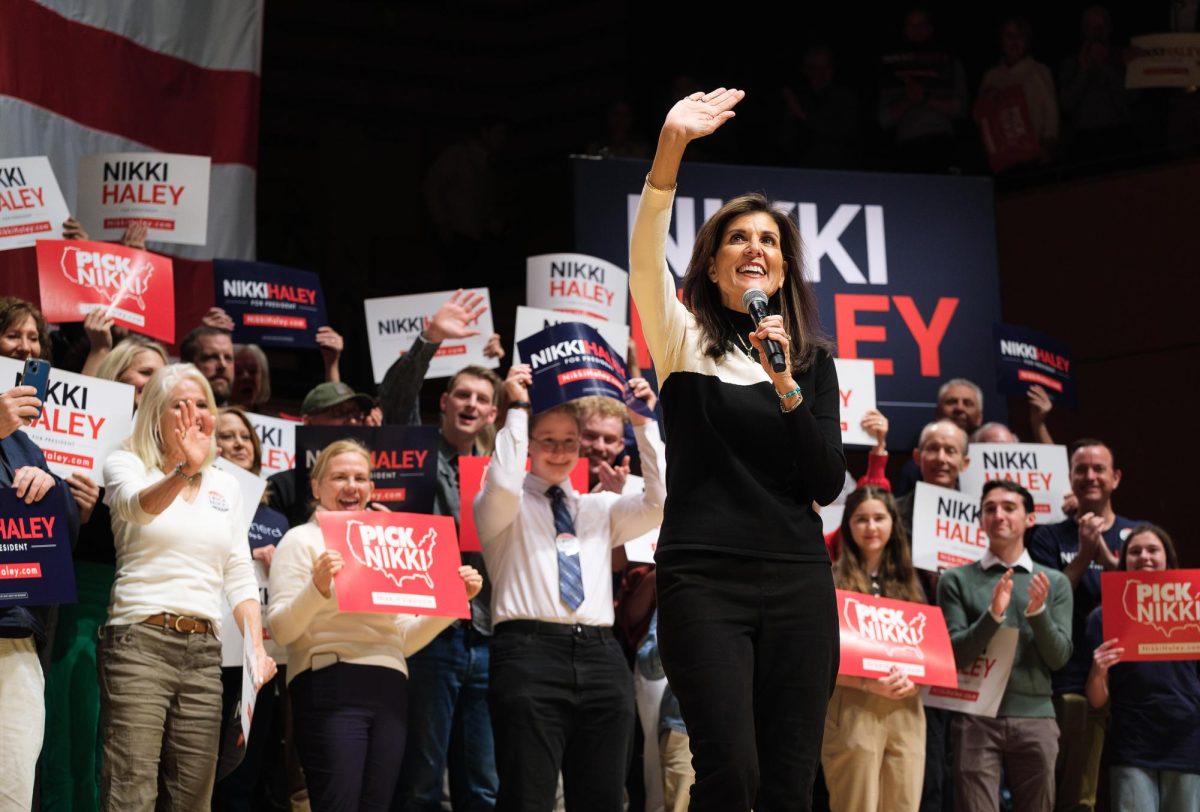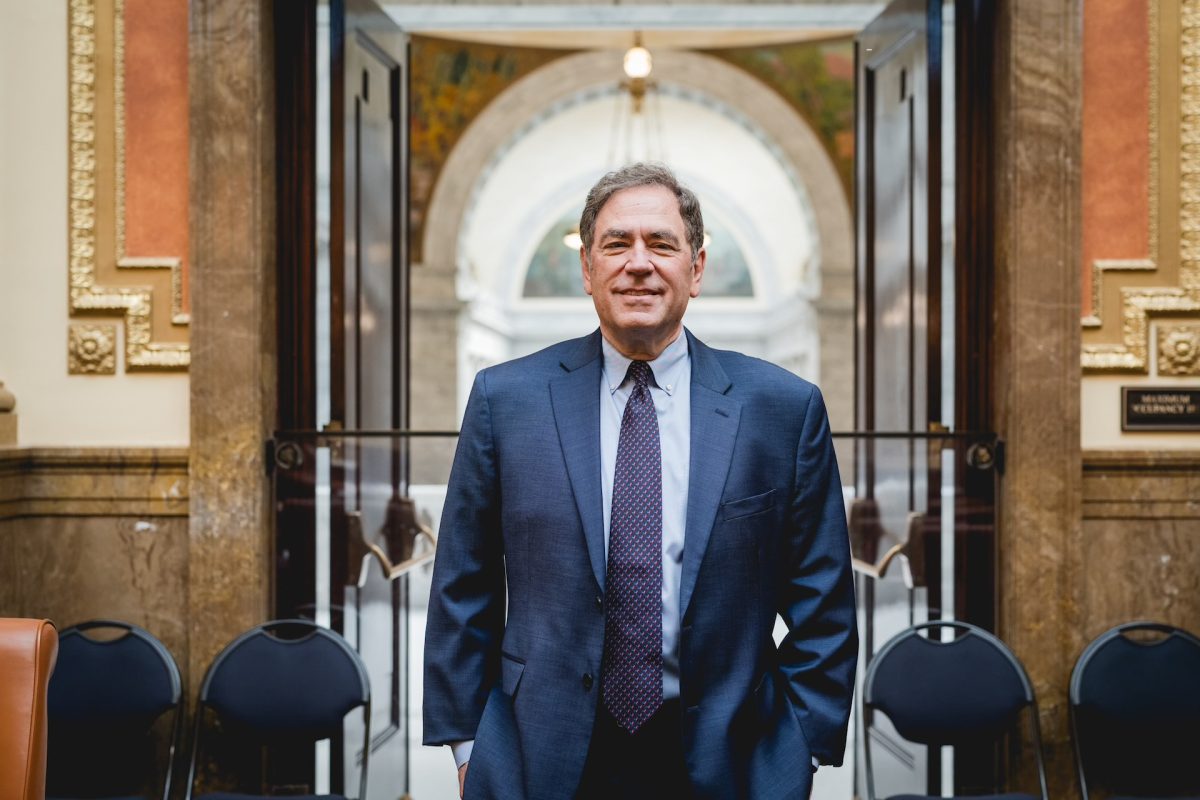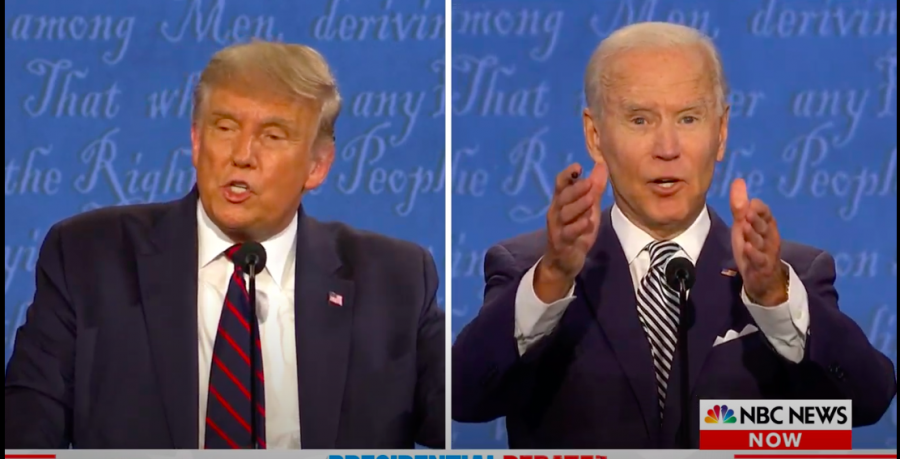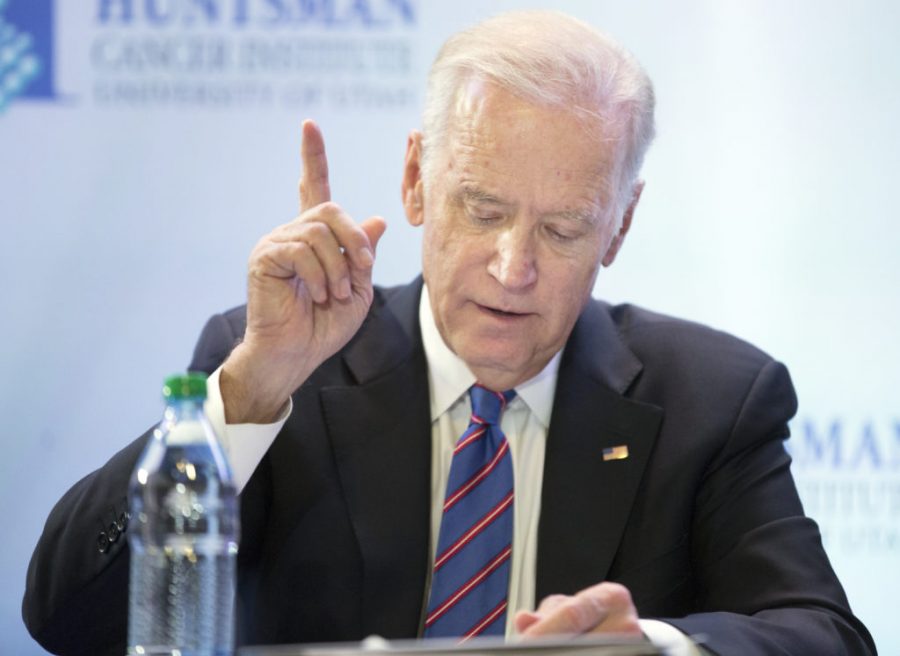Speaking at a round table discussion at the Huntsman Cancer Institute (HCI), Vice President Joe Biden commended efforts toward improving cancer treatments and highlighted what he sees as the key issues moving forward in the national “moonshot” effort he is leading to find a cure.
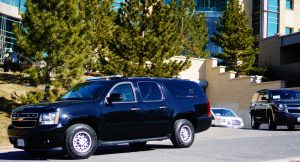
The Institute, founded by Jon M. Huntsman, Sr. and his wife Karen, is the state’s official cancer center, as well as part of the U Health Sciences.
The term “moonshot” effort has been met with opposition by cancer experts, as it is seen as misleading of the timeline it will take to cure cancer, and the Vice President said he regretted using the phrase. However, Biden did invoke the idea of researchers working together to “do in five years what we would have done in 50.”
Biden addressed a board of cancer experts and Huntsman representatives. He called for increased collaboration between medical and scientific disciplines, highlighted the importance of the Utah Population Database (UPD) and sought information about how the Institute is working to increase patient care experiences.
The Institute is the steward of the Utah Population Database, which offers information on the medical and genealogical histories of over 22 million people. Cancer is a genetic disease dealing with the way cells multiply and divide, and the Vice President and other panelists stressed the importance of aggregated genealogical information, saying increasing access to “big data” is essential for finding cures to different types of cancer.
Biden said he believes the nation is at an “inflection point” of hope and optimism. While researchers across the country have made individual advancements, such as the use of targeted ultrasound, to find “more of the pieces,” he said increased collaboration is needed to piece this information together and find larger answers.
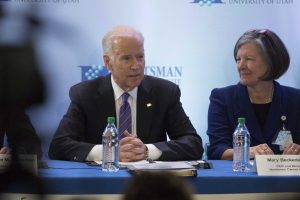
“Tissue is useful, but family history is really powerful,” Beckerle said. “You have the power to figure out why somebody is affected and why someone isn’t.”
Panelist Emma Houston, a cancer survivor and Huntsman patient, also emphasized the importance of family history and genetic information. She said if she had known her own family history, her daughter’s breast cancer could have been caught much sooner.
However, there was disagreement over how the nation should move forward with big data. While Beckerle promoted the expansion of the UPD, Amy Compton-Phillips, MD from Providence Health and Services, said other regional databases should not be excluded.
Kathleen Mooney, U professor of nursing, emphasized the need for patient-centered approaches on recording treatment outcomes and also touched on the need for increased access to care for patients in rural and local communities located away from large medical hubs.
As the discussion concluded, an audience member who identified himself as Northern Ute spoke up and said he felt the discussion had not properly touched on the issue of care for native peoples. He said he would strongly encourage the Vice President to look into the care options available on reservations.
The Vice President responded that getting care into local and rural communities is one of his main focuses.
In his closing remarks, Biden, who’s son Beau died from brain cancer last year, reflected on the first-hand experience it gave him and the realization of a need for a cure.
“Every night when I went to bed,” Biden said, “my prayer was, ‘Just let him live long enough for the science to catch up.’”
@NikiVenugopal









